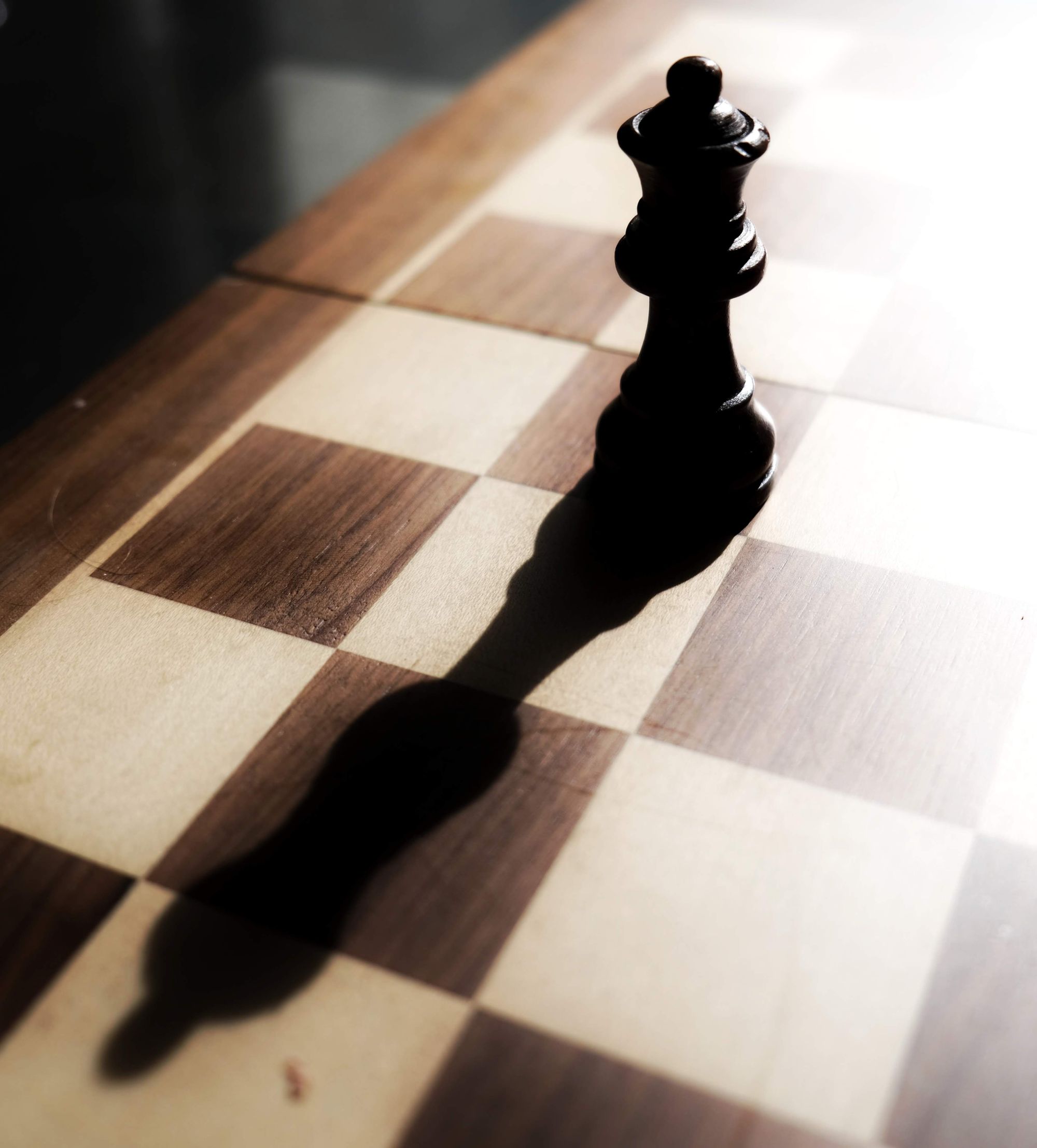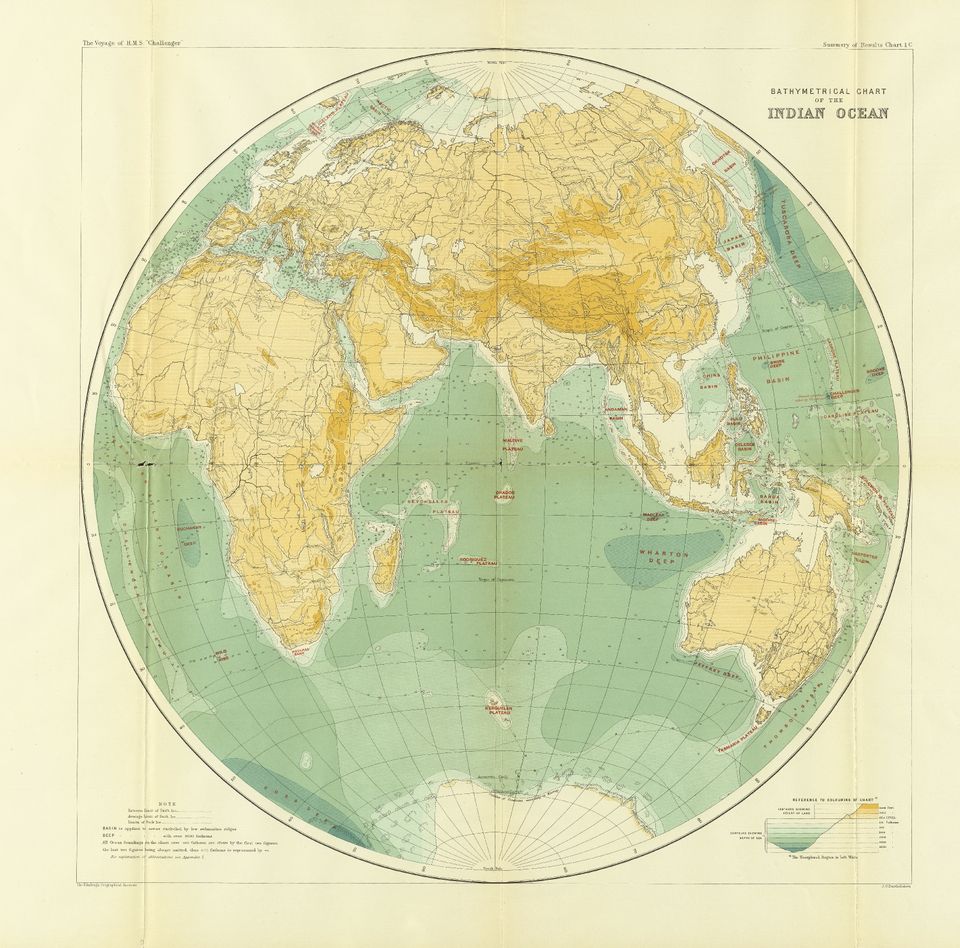My my prior essay, On the African State, explored how a lack of strategic consensus building among elites has hamstrung the ability of African countries to develop "developmental states" similar to those in East Asia. This essay explores the question of what it would take to build strategic consensus, and more importantly how to build a "strategic state" in an African context.
The central core of developing strategy is the notion of intent, more specifically clarity with respect to desired outcome/s. Strategy is merely a means of achieving a desired outcome. In the context of nation building, this is sometimes called "national interest."
National actors will typically have short term, medium term and long term interests; and more broadly the short term and medium term interests build towards the longer term interests; whilst providing for the attainment of more immediate tactical goals. In much of Africa, the long term interests are typically framed as "becoming a developed country" though this isn't framed within the context of a wellbeing delta with already developed countries--and that continues to expand as they continue to grow too. To use statistical language, our place in the world isn't framed within the context of where we hope to sit on the normal distribution curve of global performance. To use a more academic framing--are we hoping to be an average C student, or a top performing A student; and since our competition (the other members of the class) are also still in a state of progress, not being static--what does that mean for us?
Whereas we in Africa usually do not frame our position in the world within these realist terms; our development partners typically do. For example, the USA is clear about its role being that of "leader of the free world" and is very self aware of its position as super power. Further, the USA is very clear about its intent to maintain the balance of power in a manner that maintains its leading position. Its actions in the global theatre generally frame that goal as being its core motivating national interest; and its domestic policy is anchored on ensuring that its position in the world is sustained. This is seen as a means of ensuring the liberty of its citizens is sustained into the future. Additionally, its actions in the global theatre are also framed as being anchored on furthering a rules based order. To that effect, the USA has sponsored the development of various global multilateral institutions, from the UN, to the Bretton Woods institutions, and many others. The development of a global order and America's role as architect are seen by American elites as being good for American national interest, and also good for the world.
China also aspires to reorient its position in the world; returning to its historic role as "middle country"--a civilisational centre of gravity for the rest of the world. Europe, which has for the last 80 years existed under an American security umbrella via NATO, also increasingly talks of achieving "strategic autonomy." Emmanuel Macron is perhaps the biggest champion of that cause, having spoken in the past about the need for a pan-European security force, and the development of European strategic interests. In contrast, most of us in Africa hope to be come middle income countries at some point in the future; and have no real clearly articulated thesis regarding what we hope to achieve in comparison to other regions. It is as if we assume that "family of nations" are not in strategic competition.
So--in lieu of this, what would a strategic state in Africa look like?


A good place to start is defining what a strategic state is:
A strategic State is one in which there is a very high degree of internal coordination. The economy, society and polity share in the organisational task--driving towards shared aspirations/goals together. National institutional arrangements, and private ones, work in concert to contribute towards the strategic capabilities of the state. Consensus is key to this, through it a national ethic is developed, and this ethic along with the consensus enables coordination in the pursuit of the grand organisational task--whatever that may be. The USA is a good example of this.
People sometimes talk about the "military industrial complex" these are the institutions, both civic institutions and private working in concert to develop and sustain the strategic military capabilities of the US state. The US government plays its role by facilitating a significant defence budget, security officials define their goals (from short term to long term) and private contractors develop the technologies and capabilities required to achieve those goals. Additionally, academics, foreign policy experts, lobbyists and think-tanks all work towards the intellectual shaping of ideas which will impact the goals of security officials, and therefore politicians and thereafter budgets. It is a loop that ultimately is animated by a national ethic--the American dream, American idealism; specifically American liberty. To be the land of the free, to continue being the land of the free, and further to enable to the most practical extent other nations to enjoy similar freedom.
So what would a strategic state in Africa look like?
Such a country would have an elite that have a shared ambition regarding their country's place in the world. This shared ambition regarding their country being high status both in qualitative and quantitative terms is key. Qualitative terms would be things like the respect or regard given to a country as experienced through soft power e.g. are its cities a preferred destination for tourists? How difficult is it for its citizens to obtain visas for travel? Is it a place high status people from the rest of the world would consider living in? Quantitative terms in this instance would be things like the extent of national wealth as calculated in GDP per capita, or savings per capita, the extent of poverty in a country, a country's ability to defend its borders. Whilst these would be things that the elite would have in mind; they aren't an emotionally motivating call to action. They aren't enough to build a national ethic, they don't inspire.
South Korean and Chinese development has in many ways been motivated by a desire to not allow colonial experiences to re-occur. In the case of China, the sacking of Nanjing and the raids on Shanghai, or the Opium wars demonstrate in a real way why strategic power is a necessary defensive capability. Being a poor country exposes a country to the risk that wealthier countries may abuse their power in pursuit of their own interests. Economic development is thus a means of achieving security. The same can be seen elsewhere, in Rwanda--the trauma of the 1994 genocide is very real. High levels of economic growth are a means of maintaining social equilibrium and preventing potential relapses. In Gulf Arab countries too, high levels of economic growth and productivity are a means of ensuring that a social contract that sustains absolute monarchy--remains in place. In all cases, these are forms of security focus; with the goal being maintain a desired equilibrium.
Whilst colonialism in Africa was a traumatic experience, a potential relapse by empire builders is no longer a motivating fear among African elites. In fact, many now share security arrangements with what were previously colonial actors; e.g. France in the Sahel. In the absence of nervousness regarding the ambitions of potential colonisers, and in the absence of "an [add country here] dream" what is to motivate the emergence of a national ethic?
Earlier I spoke about how our elites and policy makers typically do not frame the development project in comparative or competitive terms. Development is in a sense similar to a race. The pace of development is speed, and country ranks are like positions on the race track, as cars whiz along in competition. As implied by the analogy, in real terms develop-ing is actually about being fastest overall to the extent that one maintains a leading position. The development state is not static, it is dynamic. So if African countries were to become middle income countries, as many aspire to--already developed countries would have further developed to another state of advancement; with capabilities to match. The goal therefore should be working towards a state of parity with advanced states; with goals being measured within the context of gap closure deltas. To use my above analogy, to start playing to win.

One way people get motivated to do better, is to feel or experience a paradox in dualities of awareness regarding themselves. Specifically, to feel that one has high potential that is being squandered or unmet, to feel shame and ambition at the same time. Shame because it is clear that one is clearly failing, and ambition because one wants to do better and believes they can. Once ambition exists, a plan is set in motion to achieve the goal. At the moment, with the exception of South Africa, Mauritius and Botswana, all African countries are poor countries. Some poorer than others, but all are poor in the sense that broadly--we all rank lower than other countries across various measures of performance. The historical reasons for this are understood and appreciated, but after 60+ years of independence, we need to grow beyond whatever historical disadvantages we have had.
Africa has had a tough ~500 years. Through that it has faced 80-100 years of colonial exploitation, and more than 300 years of trade related exploitation--including industrial slavery. Making sure that never repeats itself should be a driving imperative. Indeed "never again" is a driving imperative of the State of Israel within its own history and context. Our place in the world today does not guarantee our security, in fact--our security is in truth mostly assured by the good will of super powers. Additionally, it is in part secured by the impractical dimension of old-school imperialism (read, maintaining colonies is expensive). However if for whatever reason that were to change, perhaps because global warming forces it to change; would African states be capable of defending themselves? No--they would not. Whilst this may seem hyperbolic, it would not be the first time in human history that climate changes forced migratory behaviour. Further, in any case--for South Korea and China, the theoretical possibility of colonial relapse was and has been sufficient reason to inspire the development of capabilities to offset it. Africa should be no different, additionally--that possibility plus our ranking as many of the worlds poorest countries, exposed to risk--should cause shame among elites; and the populations at large.
If we do not awaken to our shame, the rest of the world will. Racial prejudice will continue, the waves of migrants going into Europe using boats and rafts to cross the Mediterranean will be a point of contention--and shame with regards to Africa's relationship to Europe. We will not grow out of our dependence of aid; which will cause further shame. The world will see our shame, but if we continue as is--we will not; and therefore the regard for African people will be low. Being awake to this shame is important because in truth it exists. It exists in the conversations people have in their safe spaces, where they talk frankly about Africa's progress or what they may see as the lack thereof. What is conversation today may crystallise into something else in the future, given sufficient time. So, again I say--being awake to the shame is important. That must be paired with something else, ambition to change our circumstances, and fast!
Pairing shame and ambition might be enough to create a national ethic, and a national dream. Educating people via media communications, to awaken them to our true state relative to the rest of the world; and propagating a message of an alternative future; and building a sense of solidarity around that message. This would have to be paired with working with civil society, and elites (economic, political, religious, academic, etc) to build a consensus around the sort of industrial complex that will be required to enable change. The goal being to seek the development of an industrial complex that achieves significant force multiplier effects. Political elites will need to strengthen an enable national institutions to facilitate this transformation; helping to create a sense of trust among stakeholders--belief that what is being annunciated is being followed through-on. Private enterprise will have to work as an extension of the nation building program, executing the strategic goals of the state. The state may have to coordinate with foreign investors, and multilateral organisations in ways that enable their efforts to complement its strategic intentions; including the provision of finance to domestic private players that work to execute the national agenda. This is what happened in South Korea, in Taiwan, and is happening in China. Masterful coordination.
In lieu of the current realities of the African political economy, and in particular--the nervousness that political elites have towards economic elites. A new consensus may have to be articulated in order to facilitate the emergence of a strategic state. The rules of "the game" will probably need to explicitly dictate that those who engage in business with the state or supported directly by state interventions--can never join politics.
As I discussed in my essay on political economy, companies like Samsung and Hyundai were supported by the South Korean state; in particular they were given credit guarantees by the State, enabling them to borrow cheaply and from international lenders; enabling them to finance their export driven scaling efforts. To the extent African states desired to replicate similar playbooks, barring senior shareholders and managers from political office would enable business people to focus on business, whilst politicians focus on politics. Rules on political donations, could also curb the influence of business elites on political campaign spending. To the extent nervousness regarding economic elites is the reason political elites have historically not empowered their domestic private players--rules such as these would largely eliminate their cause for concern. Similar rules regarding religion could have similar effect, if paired with rules around eligibility of those aspiring for political office--specifically, enhancing the requirements regarding academic excellence, career performance, aptitude among others. Rules such as these have been using in Singapore and China to positive effect. Further, whilst the Anglo-American political systems do not explicitly require such rules, they are implied through pedigree; e.g. prior military experience, having graduated at an Ivy League university or its equivalent, career success in a chosen profession. The goal in setting new rules of this sort ought to be that ambition and success should be rewarded.
This sort of system could reinforce the national ethic and re-invigorate a pursuit of excellence in national institutions. It would help push local universities to pursue being the best universities. If the rules for political office bearers were high, it would force similar rules for civil servants, again creating a flywheel for the pursuit of excellence. Creating elite (in the sense here that they are excellent) universities would also facilitate the development of shared values and consensus among high performing graduates who end up working in politics, business and the civil service. These universities would become the means through which the nation building exercise is propagated through the hearts and minds of high performing young people; in granular terms as well as thematic terms. The big hairy audacious goal that would be propagated is "we want to match and exceed the advanced countries of the world." This sort of belief, along with a feedback loop driven by achieved success--starts to give credence to the "dream" being propagated by the State.
As said earlier, a strategic State is one in which there is a very high degree of internal coordination. National institutional arrangements, and private ones, work in concert to contribute towards the strategic capabilities of the state. This word, capabilities, is very key. In coordinating and building consensus so that actors can work in concert for the benefit of the State, there must be a lucid assessment regarding the existing capabilities of the state, and what they could grow to become. If you don't have direct access to a port, have low levels of manufacturing potential but have a well regulated financial system--should you focus on scaling up manufacturing or scaling up your financial services industry? If services are 50% of GDP and have many local players, but manufacturing is 10% of GDP and led by foreign players--how does that factor into decision making? Defining your capabilities is key because investing in sectors of the economy where many elites already have some capabilities enables them to buy into the agenda that is being proposed. Reducing the roadblocks to persuasion is critical. China and South Korea didn't go from zero to manufacturing the most sophisticated technologies; they first started by manufacturing toys and simple electronics where capabilities already existed--and scaled those up. This was done with the goal of eventually developing advanced technologies; including the means to achieve self defence.
That last phrasing, self defence, is important. Nations take pride in their militaries. Parades exist in part because militaries are a shared avatar for national pride. Being able to parade military technology developed by the country itself adds an additional dimension to the sense of pride that these parades propagate. With the exception of South Africa, most African countries do not manufacture their own military hardware. It is almost all entirely purchased from other countries in Asia, Europe or North America. In a sense, we do not have the capability to create the means of our own defence; and that despite the fact that on average most African countries spend ~3% of GDP on their defence budgets. That is a strategic weakness. As demonstrated by Israel and China, the ability to develop at least some of the means of self defence has significant spillovers to other modes of industrialisation that may be consumer facing. Defensive capability is a core strategic capability; harnessing it to help build the new national narrative or dream can be incredibly powerful. If a country says "never again" and pairs that with enhancing its defensive capabilities and economic capabilities; it helps motivate national ethic in practical ways.
As an example, on the basis of a "never again" ethos, a country may choose to have a national service program. In this program all eligible citizens may go through a period of military training. If during that training they are handling munitions, weapons systems and uniforms made by private contractors within their country--that helps to create a sense of pride. They can take that shared pride with them as they leave their time in national service. The development of such systems can also create the impression among citizens that they have a serious leadership, and are becoming "a serious people." That same impression would not be lost on economic elites, who may take on a more State-first view of the world. Increasingly seeing themselves as channels through which the State agenda is achieved; by participating in such efforts. The same is true of infrastructure development, requiring that state funded infrastructure developments be constructed by consortia led principally by local players--the development of a country is seen as a domestic undertaking. The key to this of course is an ethic and systems that eliminate corruption and self dealing.
As said in my prior essay, becoming serious people is key to our efforts. In doing so coordination is key; being realists is key, but being willing to dream is also key. Deng didn't directly rule in China, as Paramount ruler his effect was real but in many ways indirect. He used moral persuasion and vision casting to achieve his ends through consensus building. Yes, he had some formal means of authority; but really it was his moral authority that worked to great effect. Likewise, although Lee Kuan Yew was the head of Government in Singapore, his moral stature and ability to create consensus and persuade was critical to his success. To develop strategic States in Africa, the ability to use moral persuasion deftly--and in ways grounded by realism and ambition will be critical. The goal is to animate coordination. We need more of it.


